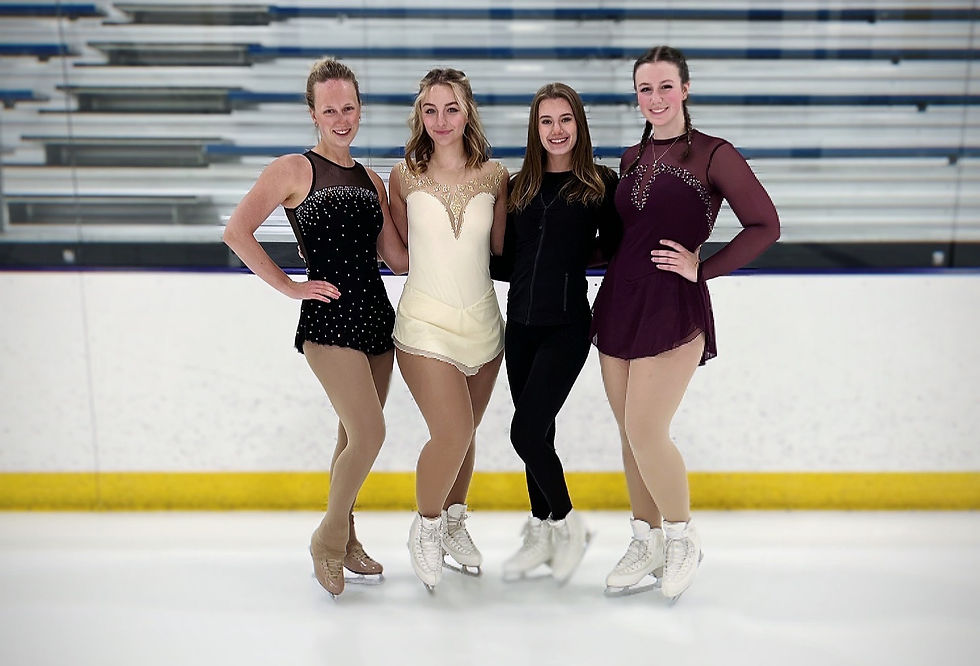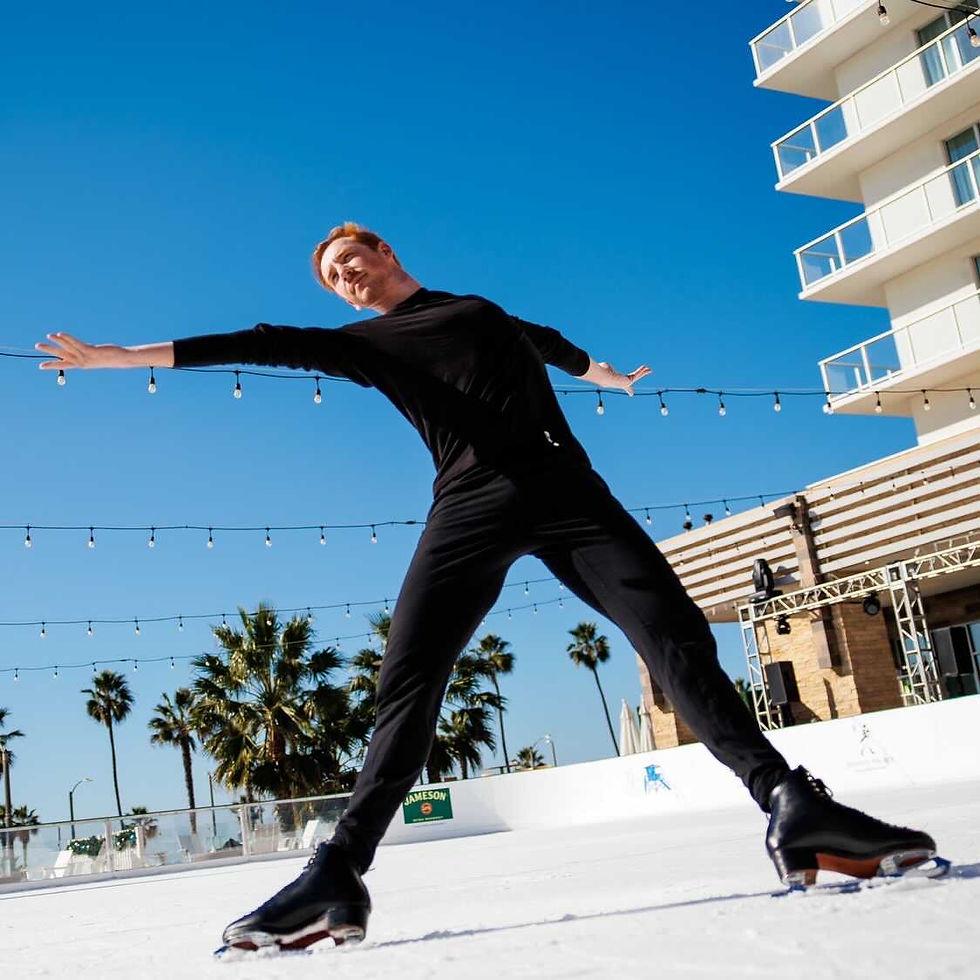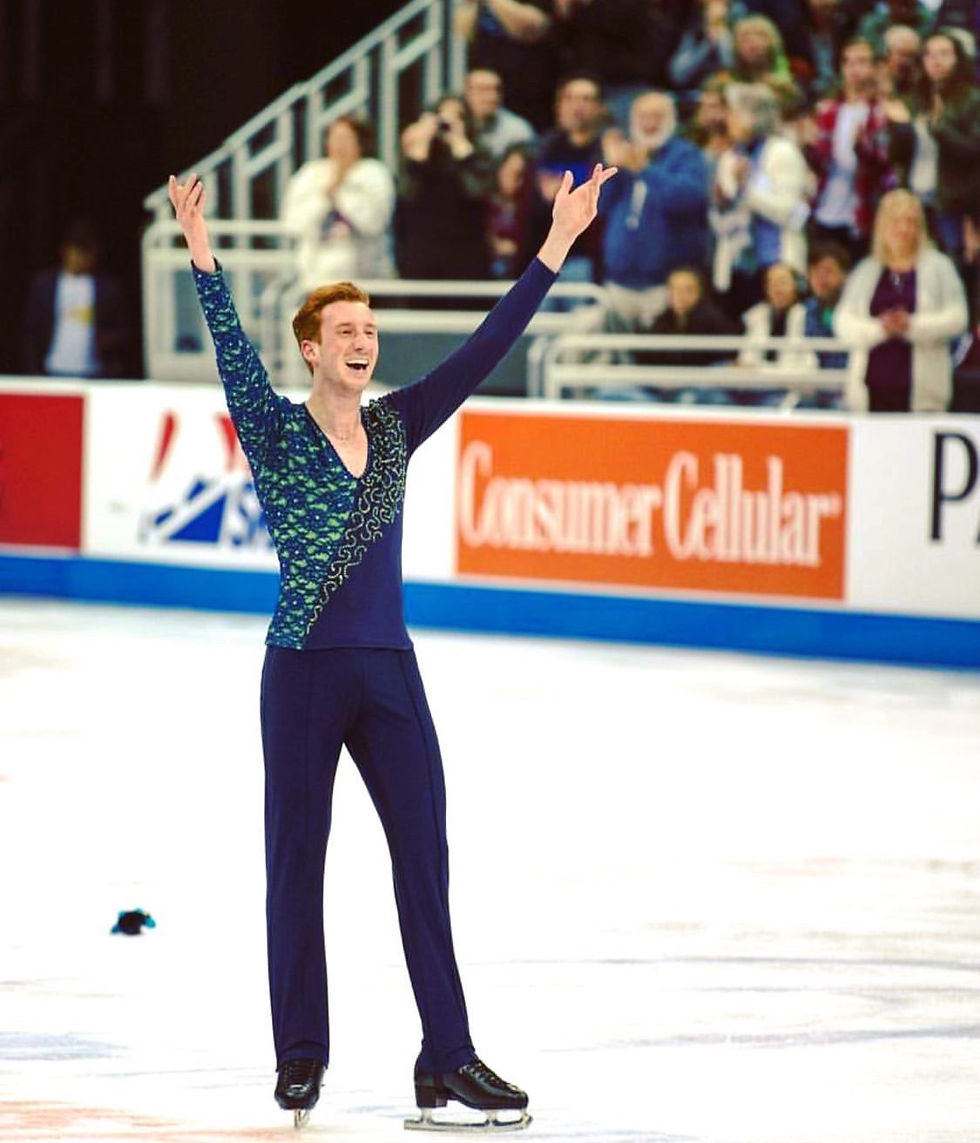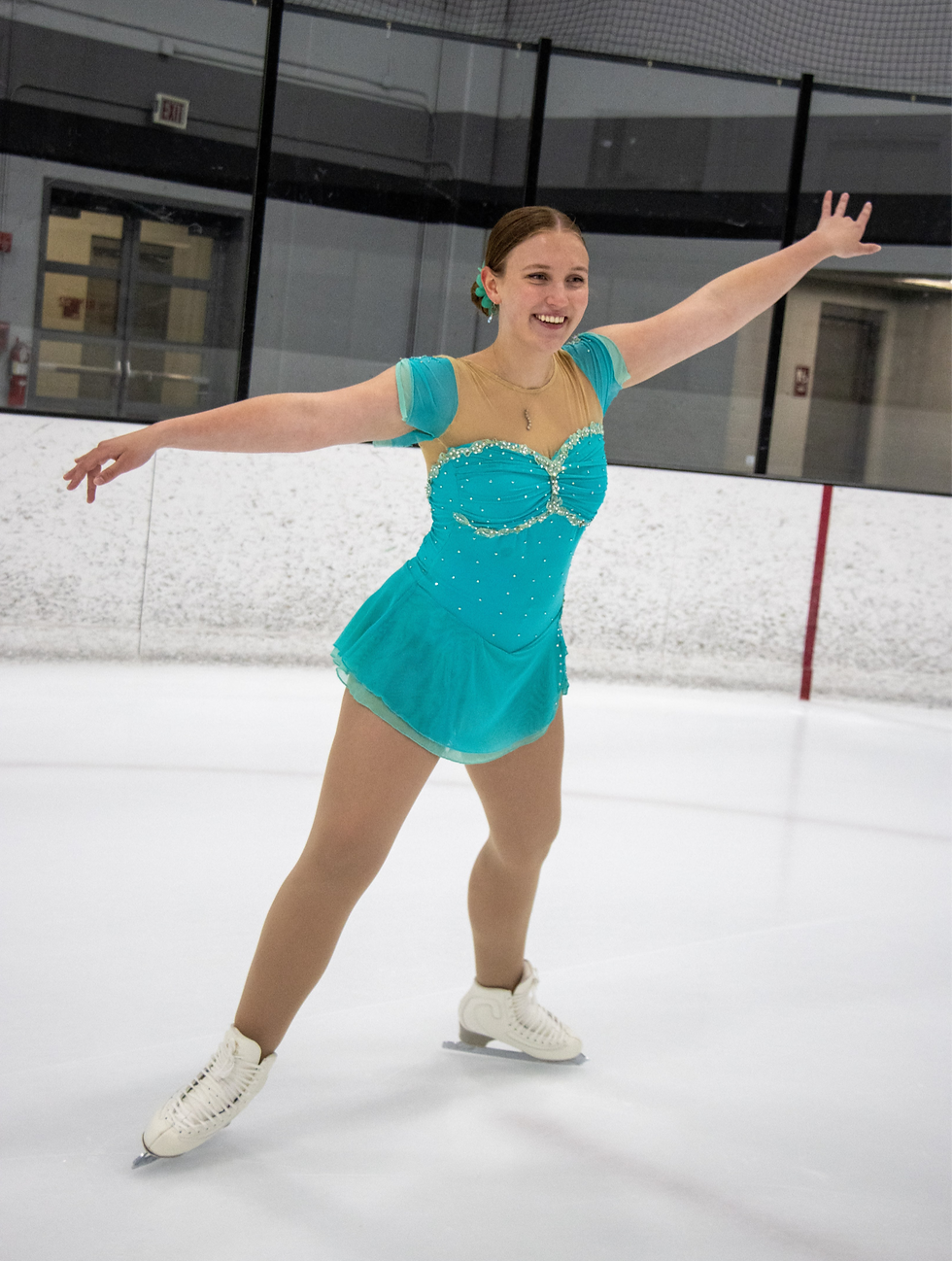
Feel like you have to give up skating after high school? Think again! Within the past few years, the adult skating community has grown with more opportunities to continue to do what you love. I spoke with Sean Rabbitt about his experience competing on Team USA for the first time at 25 years old (five years into his senior career) and the tools he used to keep getting stronger.
Skating Opportunities
Skating is viewed as having a short lifespan, with people wanting instant success. Sean discussed his mentality that skating is like a marathon, not a sprint. This motivated him to take the time to develop his skills and appreciate his accomplishments along the way. Everyone has a different journey, with athletes starting and developing at different ages. It helps to take a personalized approach to accomplish your goals. You do not have to follow the stereotypical timeline.

High school graduation does not mean those goals are over. Many colleges now include intercollegiate teams with competitions from October through March that offer an excellent team atmosphere. US Figure Skating holds an annual Collegiate National Championships for individual athletes still interested in competing. They offer scholarship money to skaters in the junior and senior levels who place in the top two (junior) or three (senior) and are full-time students. Another collegiate opportunity is participating on a collegiate synchronized skating team. Not all colleges have an intercollegiate or synchronized skating team, so check with your college! For more detailed information, visit https://www.usfigureskating.org/skate/skating-opportunities/collegiate-skating.
If you are not in college or have graduated, there are nonqualifying and qualifying competitions with different groups of ages and levels. Every year there are Adult Sectional and National Championships, and the supportive atmosphere shows how welcoming the adult community is. Another opportunity is testing with different levels for adults and criteria based on age groups. Various programs offer camps that specialize in adult skating, such as American Ice Theater, Skate and Sculpt, Road to Gold, and many others. Follow the adult skating community on social media or visit https://www.usfigureskating.org/skate/skating-opportunities/adult-skating for more detailed information!
Keys to Longevity

One of the most important factors to staying in the sport well into adulthood is staying healthy and strong. No matter how intense your training is, the older you are, the more critical it is to listen to your body. To help keep your muscles strong and flexible, off-ice training, such as strength, conditioning, and stretching, can support your on-ice training. Another key is to take personal time away from training weekly to let the body heal and refresh your brain. Sean's phrase is "relaxing is training!" Even if you skate for exercise or social connection, it is important to take steps to remain healthy. Off-ice warm-ups and cool-downs can play a significant factor in reducing soreness and preventing injury. The last key is love for the sport! Skating can be a lifelong passion, and it's important to know that you deserve to be on the ice as much as anyone else.
Current Age Debate
Most figure skaters at the National, World, and Olympic levels are teenagers or in their early 20s. We saw the toll it can take on young bodies and minds at the 2022 Winter Olympics in Beijing during the Women's Free Skate Event. The ISU responded by slowly raising the minimum age required to compete at the Senior International level to 17 compared to the current age of 15. At high-level events, older skaters are continually asked about their age in the mixed zone and interviews. Mariah Bell won her first National title at 25, and the media went nuts! Article titles like "Mariah Bell becomes the oldest US women's figure skating national champion in 95 years" were the norm. Every article included her age and how she felt skating against younger athletes.

Sean Rabbitt experienced this frequently in interviews as well. He stated, "A lot of people did put an emphasis on my age, and I felt a lot people would compare me to younger skaters who maybe had harder jumps, but the difference was I had more maturity with my skating." He also discussed how his jumps were consistent and technically precise, which came with time. Sean admitted that the pressures of being an older skater lived in the back of his mind when the men he competed against were ten years younger.
Athletes continue through college and beyond in most sports (besides gymnastics). Other Winter Olympic sports have athletes in their mid to late 20s and sometimes 30s. Figure skating has come a long way with athletes staying in the sport longer, but the media still focuses on age. Rising the age limit may not drastically start this change, but athletes, coaches, and media can choose to shine more light on the athlete's accomplishments instead of age.

Advice for Skaters
If you love the sport and have goals you want to achieve, don't let age hold you back. Skating can be a lifelong sport with a healthy body, financial means, and a support group. There can be different phases of intensity as you grow in life, but skating does not only cater to young athletes. Sean experienced people telling him it was a waste of time, but he did not listen to them and had a fulfilling career well into his 20s. Don't let another person's opinion stop you from fulfilling your passion. The end goal cannot be your only focus, whether you are a recreational, competitive, or elite skater. Skating is more meaningful by enjoying the journey instead of just the outcome. The adult skating community welcomes skaters with open arms!

Комментарии